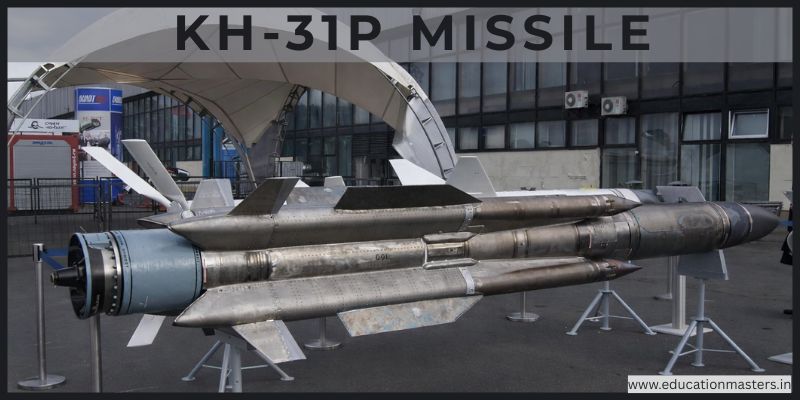Top 50 GK (General Knowledge) Questions for NDA Exam 2017
By Roopali Thapliyal | General knowledge | Sep 07, 2017

General knowledge Question Answer for NDA exam 2017
Here we are sharing the list of Top 50 general knowledge question answers for NDA Exam 2017-2018 and the other competitive exams. These General Knowledge question answers notes is posted by Ground Zero defence coaching institute Dehradun
- Whose remarks are these-the Preamble is the horoscope of our soveregin democratic repubilc ?
- M.Munshi(a menber of the Drafting Committee of the Constitution Assembly)
- Which part of Indian Constitution is described the MagnaCarta of India ?
- Part III containing Fundemental Right (Article 12 to 35 )
- Which Article of the Constitution defies the term ‘State’ in India contex ? Article 12
- The right to property was d3leted from the lit of Fundamental Right by : 44th Constitution Act 1978
- The only state in the Indian Union which has its own separate State Constitution is
- Jammu & Kashmir
- A person to be eligible for election as President of India should have completed : 35 years of age
- Granville Austin has described the Directive Principles and the Fundamental Right as :
- The Conscience of the Constitution
- A Money Bill in the Parliament can be introduced only with the recommendation of The President of India
- Panchayats at the intermediate level may not be constitution in a state having a population less than
- Twenty Lakh
- Who preside over the joint sitting of the Lok Sabha and the Rajya Sabha ? The speaker of the Lok Sabha
- The electoral college the elects the Vice-President of India consists of
- Members of both the Houses of Parliament
- According to the preamble to the Constitution , India is Sovereign, Socialist, Secular and Democratic Republic
- What is the maximum time interval permissible between two successive sessions of the Parliament ?
- Six Months
- Which are the two states (other than Uttar Pradesh) having the highest representation in Lok Sabha ?
- Bihar and Maharashtra
- Who has the power to summon and prorogue either House of Parliament or to dissolve the Lok Sabha ?
- President of India
- By which Act was a second chamber of India Legislature known as Council of States created ?
- Government of India Ac 1919
- Which body functioned as the Provisional Parliament until the Lok Sabha was constitution following General Election in 1952
- Constitution Assembly
- Under which Article can the President of India be impeached on the ground of violation of Constitution ?
- Article 61
- By the 69th Constitutional Amendment Act 1991 Union Territory of Delhi was redesigned as :
- The National Capital Territory of Delhi in 1992
- Cultural and Educational Right are enshrined in : Article 29-30
- Which Article declares that a constitutional amendment a law and hence cannot be challenged ?
- Article 13
- The law which imposes penalties retrospectively (retroactively)-upon acts already done or which increases the penalties for such acts is known as Ex-post-facto law
- The most important law enforcing Article 24 prohibiting the empolyment of children beow the age of 14 years in any factory or other hazardous activities is The Child Labour (Prohibition and Regulation )Act 1986
- Under the Chapter Amendment of the constitution (Article 368 in Part XX) special majority of Parliament means :
- More than 50%of the total membership of each House and a majority of two-thirds of the members of each House present and voting
- In India, the president is the head of the state while the Prime Minister is the head of : The government
- In scheme of bicameral legislature as provided in the Constitution of India, Rajya Sabha represent :
- The State of Indian Federation
- The Constitution of India has divided the powers between the Centre and the States in terms of :
- The Union List, State List and Concurrent List
- Incomparison with the American Federation which is described as an indestructible union of indestructible states the Indian Federation is : As Indestructible Union of Destructible States
- The leader of the largest opposition party having not less than one-tenth seats of the total strength of the House is recognised as the : Leader of the opposition in each Houses of Parliament
- The last session of the existing Lok Sabha,after a new Lok Sabha has been elected is called :
- Lam-Duck Session
- Which Constitutional Amendment Act facilitates the appointment of the same person as a governor for two or more states ?
- 7th Constitutional Amendment Act, 1956
- Which Article of the Constitutin empowers the High Court to issue writes including habaes corpus, mandamus, certiorari, prohibition and quo warranto for the enforcement of fundamental right of the citizens and for any other purpose ?
- Article 226
- Who headed the committee on ‘Revitalisation of Panchayati Raj’ Institutions for Democracy and Development appoited by the Rajiv Gandhi Government in 1986 : M. Singhvi
- 73rd Constitutional Amendment Act 1992 has added a new Part-IX to the contitution of India entitled as the “Panchayats” which provides for : a Three-Tier System of Panchayati Raj System
- The Central Recruiting Agency of India is : The Union Public Service Commission (UPSC)
- To be eligible as Vice-President a person should have completed : 35 years of age
- The pardoning power of the president in India as enshrined in the Article 72 of the Constitutional of India includes :
- Pardon, Commutation, Remission, Respite, Reprieve
- Under which Article of the Constitution does the governor of state possess the pardoning power?
- Article 161
- The Zonal Councils are the statutory bodies established by an Act of the Parliament that is :
- States Reorganisation Act of 1956
- The first proclamation of National Emergency was issued in October 1962 on account of :
- Chinese aggression in the NEFA (North East Frontier Agency now Arunachal Pradesh)
- The State has its own Constitution is : Jammu and Kashmir
- The right to equal opportunity for all citizens in matters of public employment has been enshrined in :
- Article 16
- In the Constitution of India, the idea of Uniform Civil Code is provided in :
- Directive Principle of State Policy
- The Voting age in India was reduced to 18 years from 21 years in 1989 by :
- The 61st Constitutional Amendment Act of 1988
- Indian Constitution provides only for : Single Citizenship
- In which schedule to the Constitution of India have the powers authority and responsibililtes of municipalities been mentioned ? Twelfth Schedule
- The provision of suspension of Fundamental Right is borrowed from :
- Weimer Constitution of Germany
- Which Article makes a provision od Administrative Tribunals ? Article323-A
- As per the peramble of the Constitution of India, the nature of India State is of :
- A sovereign, socialist, secular, democratic and republican polity
- The Indian National Congress adopted a resolution to establish a socialistic pattern of Society in :
- Its Avadi session in 1955
सरकारी नौकरियों, जीके अपडेट्स और करेंट अफेयर्स की ताज़ा जानकारी सबसे पहले पाने के लिए:
-
हमारे WhatsApp चैनल को फॉलो करें:
https://whatsapp.com/channel/0029Vb6sjZz0wajwDXcd5B0U -
हमारे Telegram चैनल को फॉलो करें:
https://t.me/educationmastersin -
हमारे Facebook Page को फॉलो करें:
https://www.facebook.com/educationmastersindia




.png)
.jpg)
.jpg)


